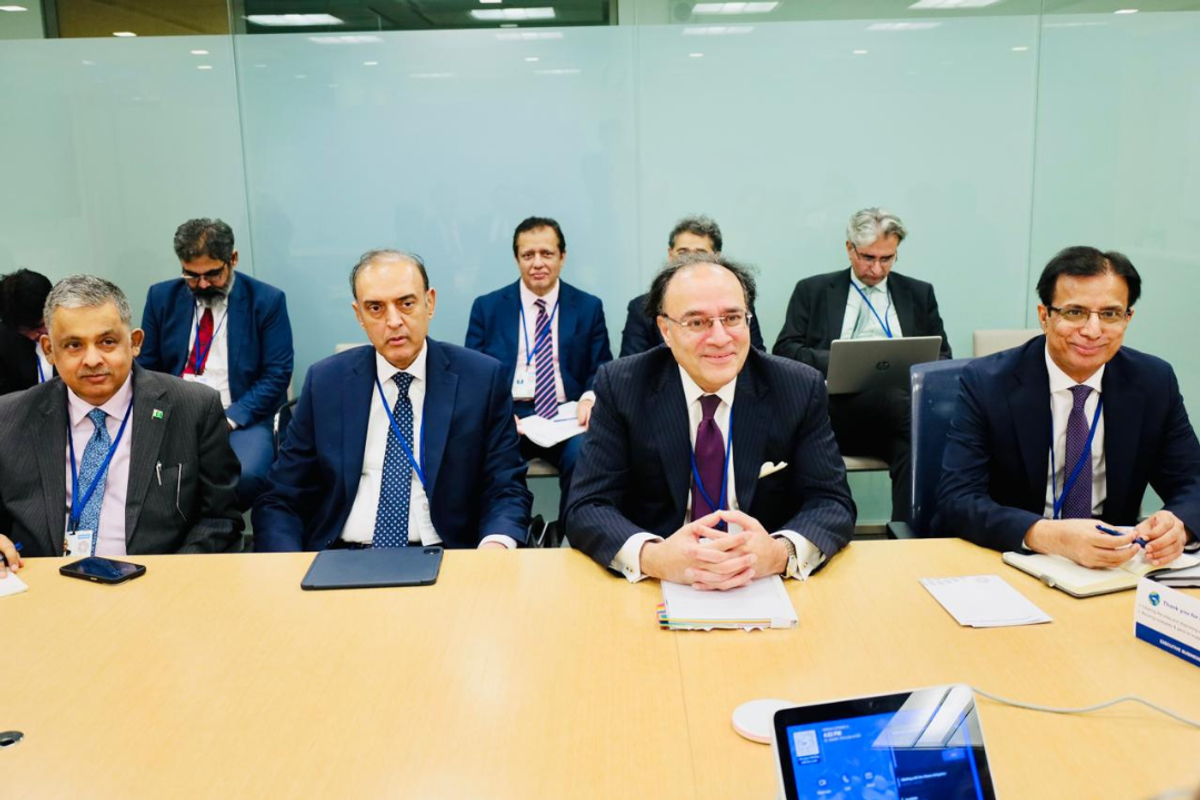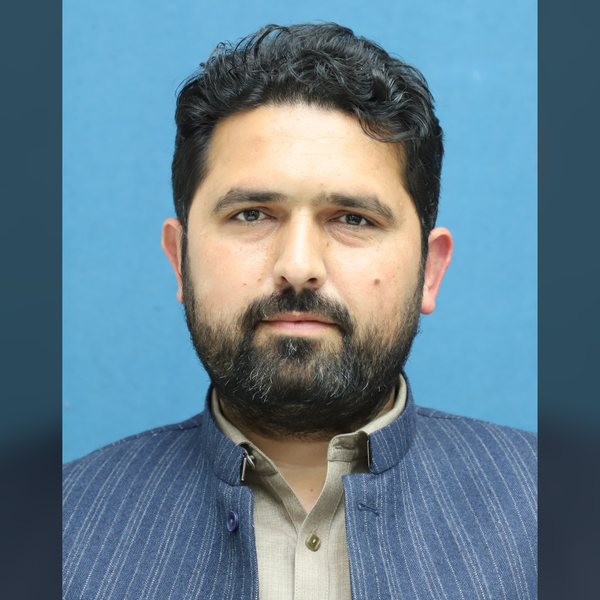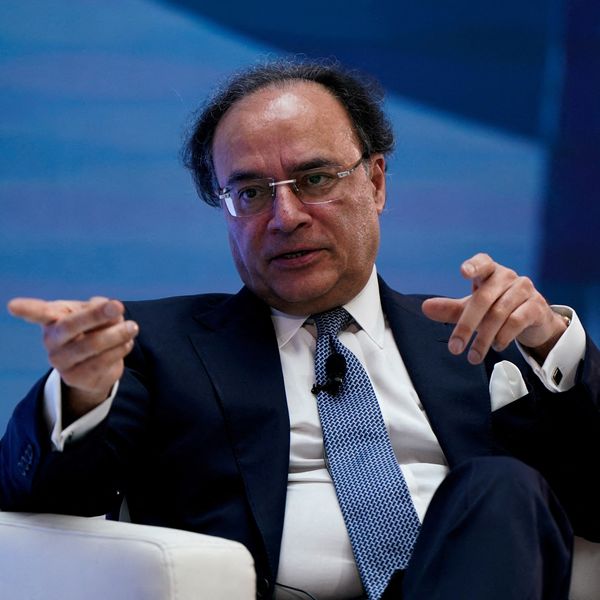Pakistan reaffirms reform commitments, seeks investment at IMF, World Bank meetings
Finance Minister Muhammad Aurangzeb holds high-level talks in Washington to advance economic reforms, climate finance, and private sector investment
Business Desk
The Business Desk tracks economic trends, market movements, and business developments, offering analysis of both local and global financial news.

Pakistan Finance Minister Muhammad Aurangzeb (R-2) is pictured during a meeting in Washington D.C.
Finance Ministry
Pakistan’s Finance Minister, Senator Muhammad Aurangzeb, reaffirmed the country’s commitment to macroeconomic reforms and deeper engagement with global financial institutions during a series of meetings held on the sidelines of the International Monetary Fund (IMF) and World Bank Group (WBG) annual gatherings in Washington, D.C.
Aurangzeb met with IMF Director for the Middle East and Central Asia Jihad Azour and his team to review progress under the Second Review of Pakistan’s Extended Fund Facility (EFF). Both sides emphasized the importance of maintaining reform momentum and fiscal discipline to ensure macroeconomic stability.
In a separate meeting with World Bank Senior Managing Director Axel van Trotsenburg, Aurangzeb underscored Pakistan’s urgent need for investment in climate adaptation and mitigation. Referring to the economic and agricultural losses from recent floods, he reaffirmed the government’s commitment to addressing climate vulnerabilities and called for mobilizing additional resources to prepare for future climate-related disasters.
At the Commonwealth Finance Ministers’ Meeting, the minister urged the operationalization of the Commonwealth Infrastructure and Financial Resilience Hub and pressed for improved access to climate finance for developing nations. He also called for faster implementation of mechanisms such as the Loss and Damage Fund to support countries facing climate shocks.
Aurangzeb later addressed the U.S.-Pakistan Business Council (USPBC), where he highlighted improving macroeconomic indicators and stressed the role of private sector-led growth. He pointed to recent trade agreements with the United States and expressed optimism about deeper cooperation in mining, agriculture, information technology, and pharmaceuticals. The minister assured business leaders that their concerns would be addressed to encourage new investment.
During meetings with U.S. officials, including Assistant Treasury Secretary for International Finance Robert Kaproth and Counselor Jonathan Greenstein, discussions focused on Pakistan’s reform progress under the IMF program and recent legislation on virtual asset regulation. Aurangzeb welcomed the conclusion of a new U.S. tariff deal and encouraged American companies to explore investment opportunities in Pakistan’s energy, technology, and agriculture sectors.
The finance minister also met Riccardo Puliti, Regional Vice President of the International Finance Corporation (IFC), where both sides agreed to expedite financial closure of the Reko Diq mining project. Discussions included scaling up private investment under the 10-year Country Partnership Framework. Aurangzeb welcomed the opening of IFC’s new regional office in Islamabad, calling it a milestone in strengthening collaboration.
In talks with Dr. Muhammad Sulaiman Al-Jasser, President of the Islamic Development Bank (IsDB), Aurangzeb reviewed progress on several projects, including IsDB financing for sections of the M-6 motorway. The two sides also discussed cooperation in polio eradication, energy financing, and the development of a new Country Engagement Framework for Pakistan.
Meeting with Citi Bank representatives, Aurangzeb acknowledged the institution’s longstanding partnership with Pakistan and discussed digital finance opportunities. He assured government support for Citi’s proposed initiatives and highlighted Pakistan’s emergence as a regional digital hub.
In addition to his official meetings, the minister gave interviews to the Associated Press and Reuters and attended a dinner hosted by Pakistan’s Ambassador to the United States, Rizwan Saeed Sheikh, in honor of the visiting delegation.
According to the Finance Ministry, Aurangzeb’s engagements reflect Pakistan’s determination to strengthen international partnerships, attract foreign investment, and transition from economic stabilization to sustainable, inclusive growth.










Comments
See what people are discussing